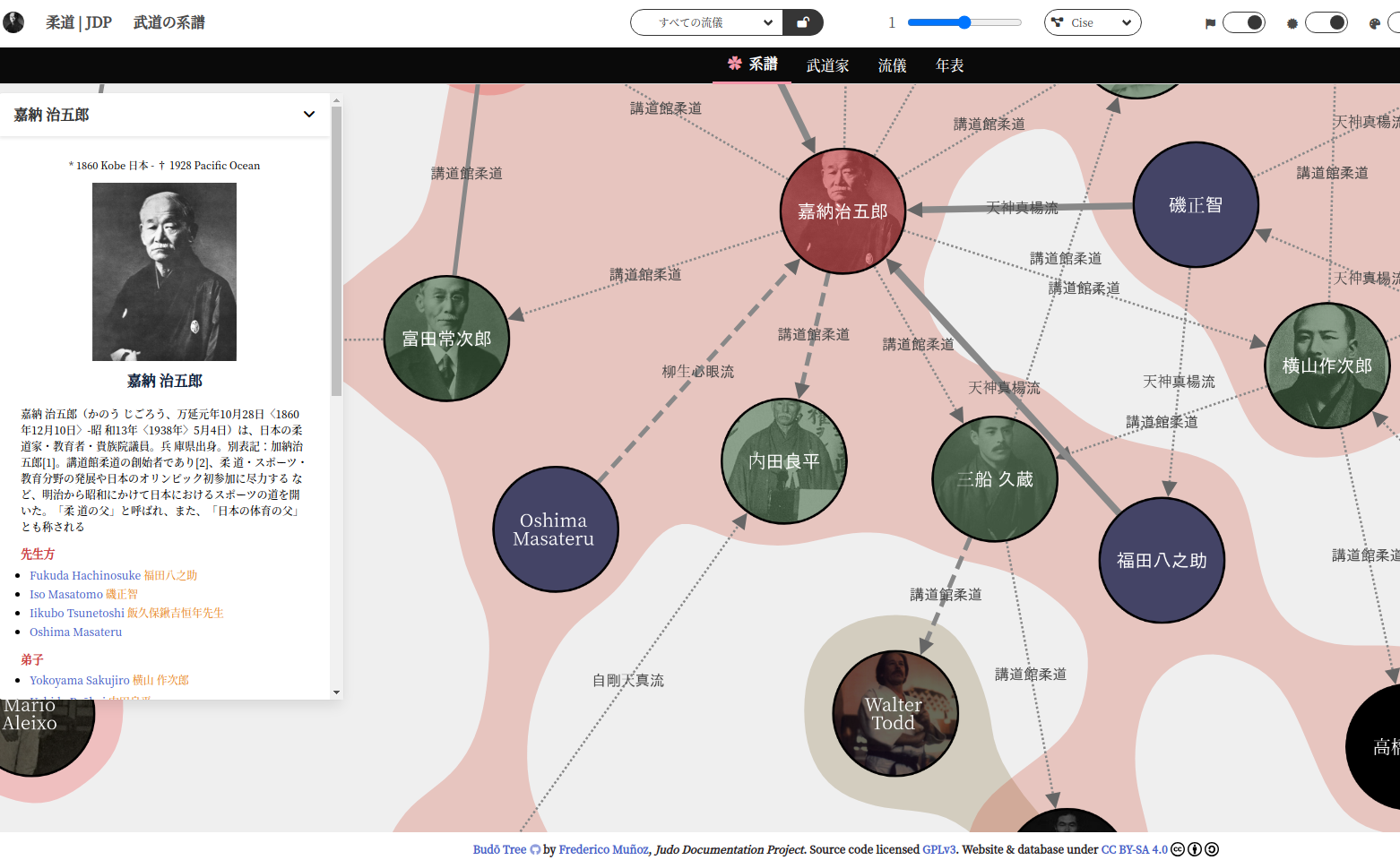Budō Lineage Tree ¶
The Budō Lineage Tree is a community-driven database of teacher/student interactions, presented as an interactive lineage tree.
There are three main components in the project:
- A database of persons, training places, styles, organisations, and sources, using YAML as the format to make manual editing in a structured form as painless as possible.
- A parser that converts the database into a Cytoscape.js JSON format, supported in both Cytoscape and Cytoscape.js.
- A web page that presents the data as an interactive tree, allowing exploration of the (sometimes complex) lineage tree.

Budō Lineage Tree screenshot
While this is done with Judo as a starting point, it is not limited to it: much like Judo had a pioneering role, as the first Budō, that influenced many other martials arts (and was in many ways a bridge between Koryū and Gendai), so does this project start from Kodokan Judo with the aim of uncovering the rich history of interactions between disciplines.
Creating, adding to, and correcting the YAML files is what drives everything else, and it’s open for anyone to contribute: each YAML file describes an individual that has at least one "teacher" (see FAQ for terms): the relationships are always from student -> teacher, and not the other way around. This means that the YAML files identify teachers, but not explicitly students, those being visualised in the tree by their own relationship as students.
Every entry should have one or more sources that allows anyone to determine from where the information is derived. This might seem overkill when thinking on well-known aspects of well-known people, but it’s very important to be consistent about it: the reality is that our knowledge is often based on a mix of myths, half-truths, unconfirmed events, and partial understanding of real events. By explicitly adding sources, we can at least clearly identify the origin of the information.
Not all sources have the same status: a random comment in an internet forum, by an anonymous user that doesn’t state the origin of the information, is clearly less authoritative than a published paper that underwent peer review. This is not to say that one is right and the other is wrong: merely that, faced with conflicting sources, those that identify their one sources carry more weight.